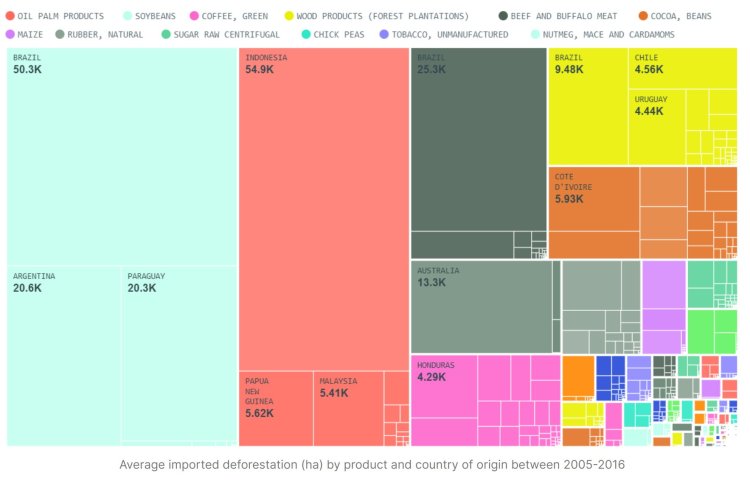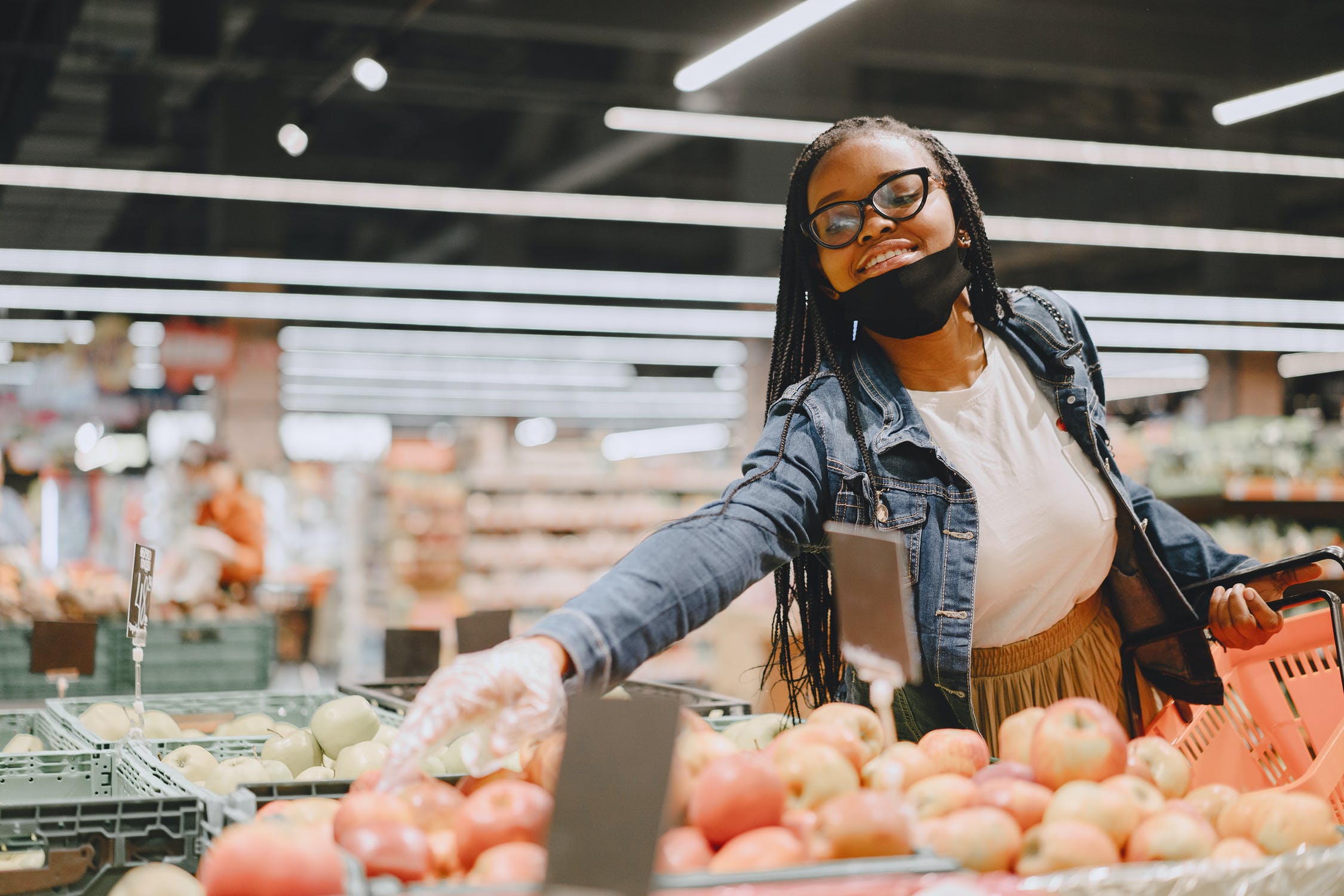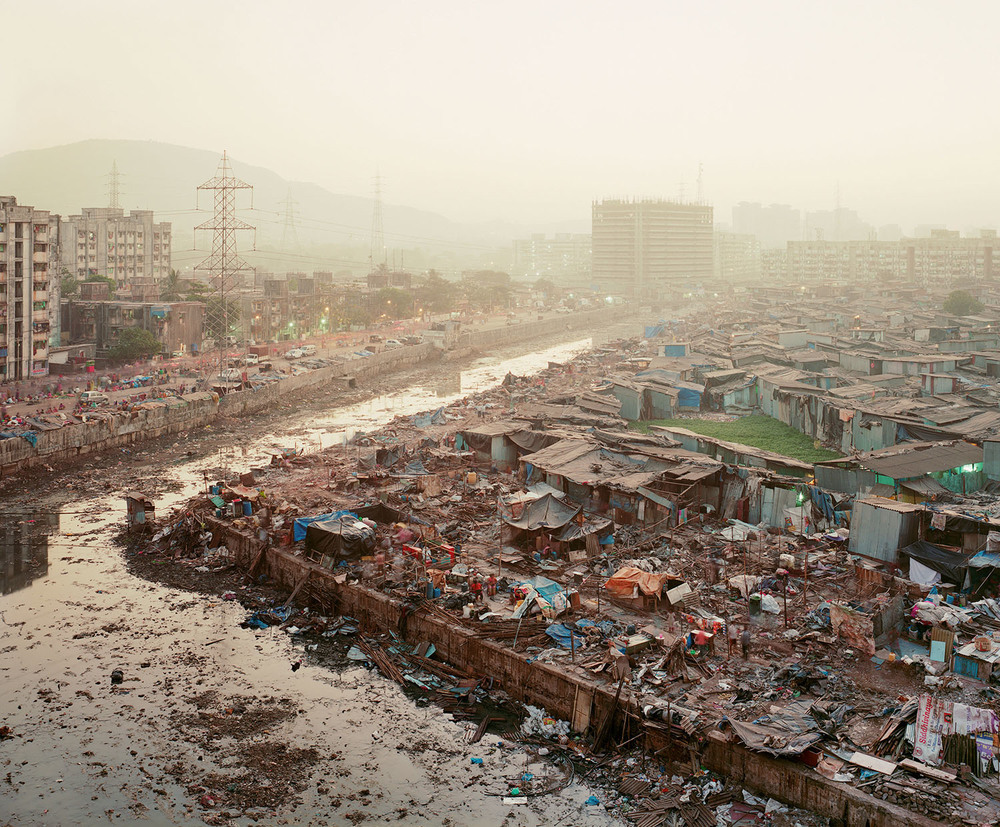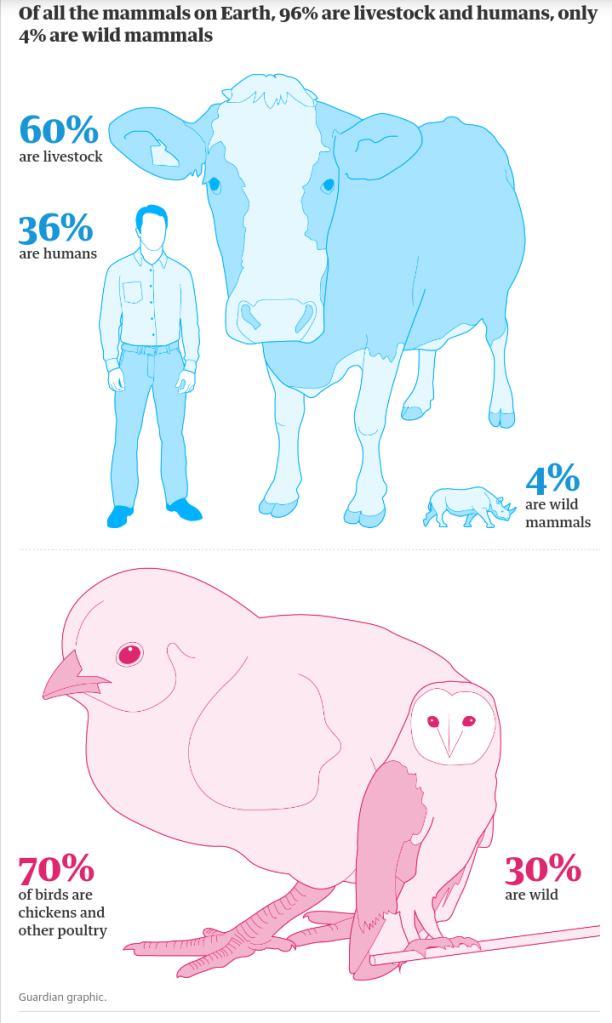Although the world is highly complex, every person can make a difference. That previous sentence almost sounds like a cliche right?
Really it’s not. If every person on the planet made a few simple lifestyle changes, it would result in less demand on land and resources and soften the impact of deforestation on endangered species.
The most powerful thing every one of us can do is to #Boycott4Wildlife and boycott the brands that are destroying the forests for palm oil, wood and soy.
Here are a few other changes you can make which collectively can save the natural world.
The Counterpunch: The easy consumer solutions that fight animal extinction and deforestation #activism #Boycott4Wildlife #minimalism #anticonsumerism #extinctionrebellion
Tweet

Change your diet to be plant-based
Agriculture is the main threat to 86% of the 28,000 species known to be at risk of extinction. Whether or not you should become vegan is beyond the scope of this website. The choice is yours to make. However, there is overwhelming evidence that if every person changed their diet to be plant-based and reduced demand for meat, we could end deforestation, pollution and stop the mass extinction of thousands of animal species.
Industrial food production is a major driver of the planetary environmental emergency. Food systems are responsible for 21 to 37 per cent of global greenhouse gas emissions, 70 per cent of water use and 80 per cent of the pollution causing eutrophication and marine dead zones.
Human rights could address the health and environmental costs of food production, David R Boyd, The Conversation, September 2021.
Biomass is the collective weight of living animal species on the planet:
60%: The animals that humans eat: meat and dairy
36%: humans
4%: Wild animals
This is pretty gross really. If we don’t change this imbalance, firstly all of the wild animals will die (which we are seeing right now), then the forests will die and then the entire planet will die, including humans because there will be no more oxygen to breathe. According to experts, this will happen within the next few decades.
Soy, followed by palm oil used in animal feed are some of the biggest causes of tropical deforestation on the planet
[Source: Global Canopy & Trase Insights]

The Counterpunch: Go plant-based
We live in a culture that celebrates meat-eating, it will take quite a lot of effort for some people to unlearn this. That is understandable. Wherever you are on the journey, even making some meals plant-based can make the difference to forests and wildlife.
Foodie inspiration
It is possible to make mouth-watering, indulgent, healthy and absolutely amazing food in your own home, all without hurting any animals, or the forests.
Will Yeung
Easy, quick vegan Asian fusion dishes.
Pick up Limes
Quick, healthy and vibrant vegan dishes.
Brands love to virtue-signal about how green they are. They use PR-friendly phrasing which make them sound amazing, but these words mean absolutely nothing in terms of real action.
- “We are committed to ending deforestation by xyz”
- “We have started on a journey towards xyz”
- “We engraved our brand name onto a tree in the Amazon…”
This is also known as green-washing. As you have seen on this website – there are very few truly sustainable multinational retail brands that are not destroying the earth in some way or another. A good place to start looking for brands who may be doing the right thing:
However, be aware that there is no real guarantee that any brand is sustainable. Be suspicious of green ticks of approval or websites with overly flowery language to describe environmental activities. Be vigilant for new information about brands. Subscribe to news from independent watchdogs of (palm oil, wood, soy, meat) deforestation such as:
- Chain Reaction Research (CRR)
- The Environmental Investigation Agency (EIA)
- Greenpeace
- Rainforest Action Network (RAN)
- You can also subscribe to Palm Oil Detectives
The Counterpunch: Find Alternatives
When in doubt, look for small-to-mid sized local retail brands that you can liaise with directly yourself to find out about their policies. Shop at independent supermarkets that support these brands and that source ethical products.

Understand: The RSPO and WWF Palm Oil Scorecard are yet another form of green-washing
The WWF Scorecard allocates a high, score to multinational brands that have not yet stopped deforestation activities in their supply chain.
Recent research from industry watchdogs indicates that retail brands with ‘No Peatland and No Deforestation (NDPE) policies for their palm oil are still buying from mills destroying forests. This means that whatever ‘sustainable’ RSPO certified palm oil label is attached to their brand – they are clearly responsible for large-scale species extinction.
So far, no palm oil industry watchdogs have been able to give Palm Oil Detectives any confirmation of any brand using deforestation free palm oil – even despite major brands such as Nestle, Ferrero, Unilever and Mars supposedly using ‘sustainable’ palm oil and obtaining a high rating on the WWF Palm Oil Scorecard.
These brands are complicit and responsible for the destruction of 38,000 ha of rainforest last year alone and the disappearance of 1,000’s of animal species forever.
Ergo – RSPO certification is a form of green-washing.
But perhaps we shouldn’t throw the baby out with the bathwater just yet!
If the RSPO can tighten its rules under pressure from consumers, it may actually make a positive difference to the forests and the animals. Consumers want all brands in the RSPO to stop 100% of their deforestation activities – right now. You can do this by joining the boycott and using the hashtag #Boycott4Wildlife
Oversight of the RSPO by independent authorities is critical to make sure big retail brands who are the big polluters and destroyers of the natural world are held to account. Consumer boycotts of supermarket brands are also critical to force the hand of change.
The Counterpunch: Boycott! Boycott! Boycott!
Using this website, you can boycott all of the brands responsible for deforestation, until they agree to stop destroying forests.
Once there is evidence (provided by independent sources: Greenpeace, Environmental Investigation Agency, etc) that deforestation has ceased – then, you will be able to find an updated list of deforestation-free palm oil brands here. But only once these brands are proven to have stopped cutting down forests.
Not promised, not talked about, not virtue-signalled…but fully ceased deforestation!
The Counterpunch: The easy consumer solutions that fight animal extinction and deforestation #activism #Boycott4Wildlife #minimalism #anticonsumerism #extinctionrebellion
Tweet

Shop local and look for small-to-mid sized brands
Often (not always) small-scale SME businesses have better oversight of their supply chain. They can therefore give clear and definitive answers on where their ingredients come from and where their packaging comes from.
Shopping to support a local business means you support the local economy, rather than a nameless, faceless corporate giant.
When in doubt – reach out to the brand over the phone or in person. You should find it relatively easy to reach a flesh and blood human being and to have a conversation about deforestation free palm oil. If they are doing the wrong thing, rather than boycotting straight away, consider pressuring them initially to change to deforestation free palm oil or another oil source that is also deforestation free, often smaller companies have the ability to pivot quicker and change suppliers than larger companies.
I’m a Palm Oil Detector boycotting @Nestle @Unilever @Ferrero @Mars @Avon @Loreal because of their #palmoil #deforestation Join the fight! #Boycott4Wildlife
Tweet

Buy wholefood ingredients and cook meals instead of buying convenience foods
Benefits
- Healthier for your body, gives you more energy and helps you maintain a healthy weight.
- Often (not always) cheaper than convenience foods.
- Cooking from ingredients means you know exactly what you’re eating.
- If you buy plant-based, your food choices aren’t hurting the forests and the endangered species living there.
- Boycotting the deforestation palm oil in your convenience food benefits all of the animals.
- You won’t be exposed to the harmful additives in convenience food that you can’t pronounce.

Break up with your stuff
Donate, sell and giveaway your excess stuff. Take the Marie Condo approach and live better with less. The stuff you own can end up owning you. Once you are rid of it and learn to live with less, there is a huge amount of freedom in this way of living.
Jettison your petrol-guzzling car
Ask yourself…do you really need a car? Can you just use an Uber instead and have an ebike for getting around? The next time you buy a car, can you buy an EV instead of a petrol-guzzler?
Audit all of the stuff you own
There’s no reason why every household on our planet needs a power drill, a hair dryer, a juicer, several TVs, expensive sporting equipment that’s used once and then stashed away. Instead you could always ask someone in your local area or your neighbourhood if and when you need to borrow something. Sharing things you rarely use instead of buying them helps to lower the pressure on natural resources.
Join the Sharing Economy
Live simply and join a community of people where you can borrow things, as and when you need it, rather than owning things outright. It saves on space, saves you money and it helps to slow down deforestation.
Trading websites are great for this. You help your local community and also
New Zealand:
Australia:
USA:
UK:

Limit your exposure to advertising and surveillance with open-source software
When you rid your daily life of ads, it becomes easier to avoid feeling pressured to constantly buy furniture, tech, snack foods and all of those traps of modern life that are destroying rainforests.
Instead you can look after your privacy and limit your ad exposure with these open-source alternatives to Big Tech. The Big Tech companies buy and sell every aspect of your personal life to advertisers. Facebook, WhatsApp, Instagram, Google and Amazon are the worst for this.
Here are some alternatives:
Signal: Free state-of-the-art open-source private messaging for mobile devices and web. Used by whistle-blowers such as Edward Snowdon. A fully private alternative to Facebook-owned WhatsApp.
Ecosia: A Google search engine alternative that will plants trees the more you use the search function.
UBlock Origin: A free, open-source ad blocking browser extension that works in Firefox for both web browser and mobile device. It can also block ads on Youtube when you view videos in Firefox.
Proton VPN: Free and paid versions allow you to use a fully encrypted VPN tunnel that ensures your passwords and data stays safe. It keeps your browsing history private and data is stored securely in Switzerland. It protects the identity of activists and journalists in countries where they may be at risk.
Protonmail: A free open-source email service that provides complete privacy. Designed by CERN Scientists in Switzerland who were motivated to create a fully secure email service. Data stored in Switzerland which has one of the strictest data privacy policies in the world.
Linux: A free open-source computer operating system. An alternative to Microsoft Windows and Apple. It has a small learning curve to use it but this is 100% worth it. The documents you create and store on a Linux computer are fully private, whereas for Microsoft and Apple operating systems, this is not the case.

Beware of tech FOMO
Tech FOMO (Fear or Missing Out) means being sucked into marketing to buy the latest iPhone, smart watch or smart TV. In accordance with creating this demand, tech companies also ensure that tech is designed intentionally to fail after only a few years, so that consumers are forced to buy new products.
This sneaky trick is known as ‘Planned Obsolescence’. Apple and Android (Google) is the worst for this.
Technology is deliberately very difficult to take apart, repair or replace parts inside of mobile phones, tablets and computers. This forces consumers to purchase a new phone or new computer. This has a terrible impact on the natural environment, as more components for tech means more deforestation and mining and more animal extinction.
The same practice occurs in fast-fashion and furniture. The practice of planned obsolescence by brands is highly unethical and unsustainable for the environment and the animals that live there.
The Counterpunch: Learn how to be a hacker, a fixer and an Inspector Gadget
Instead of giving in to consumerist FOMO and buying the latest iPhone or gadget; look to websites like Make Use Of, IKEA Hackers, The subreddit on Hacks, Tinkernuts on Youtube and Wikihow to learn hack, fix and reconfigure all of your tech, furniture and personal items and say ‘up yours’ to the greasy machine of commodification. Learn more about how to stop obsolescence.

Buy less clothes
Fast fashion is a mode of clothing production that is very cheap due to low labour costs in third world nations. Aside from the huge human rights issues with clothing production done in this way, fast fashion also has a devastating effect on the world’s natural resources. Consider that it takes nearly 2,000 gallons of water to produce one pair of jeans. According to one UN report:
The fashion industry produces 20 per cent of global wastewater and 10 per cent of global carbon emissions – more than all international flights and maritime shipping. Textile dyeing is the second largest polluter of water globally and it takes around 2,000 gallons of water to make a typical pair of jeans.
United Nations: putting the breaks on fast fashion.
The Counterpunch: Reduce your clothing purchases
The good news is that you can contribute to slowing the pace of fast fashion by buying less clothes and buying clothes in biodegradable fabric like cotton, tencel or hemp. Before you hit ‘Buy Now’, ask yourself:
- Do I need these new clothes or shoes or are the ones I own still OK?
- Why do I want this item? Did I see an ad or see an influencer talking about this item and it made me want it?
- Bookmark the page and then revisit the website in a week’s time. If you still want the item of clothing, then perhaps you should get it. Often we are held hostage by momentary urges that go away after a short period of time.
- Am I feeling sad or frustrated or depressed? Is there something I am trying to escape by purchasing? Often we buy things to cheer ourselves up. This rarely works for more than a few hours, then you’re back to feeling sad again but with an emptier wallet.
A good place to start looking for fashion brands which may be sustainable is the B Corporation directory. You can filter your search to brands in a particular industry and part of the world.




We will keep sharing your posts 😌😌
LikeLike
Thank you! Appreciate it
LikeLike
Reblogged this on MARY CALVO Musician.
LikeLiked by 1 person